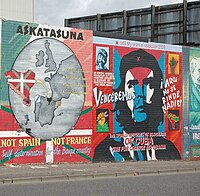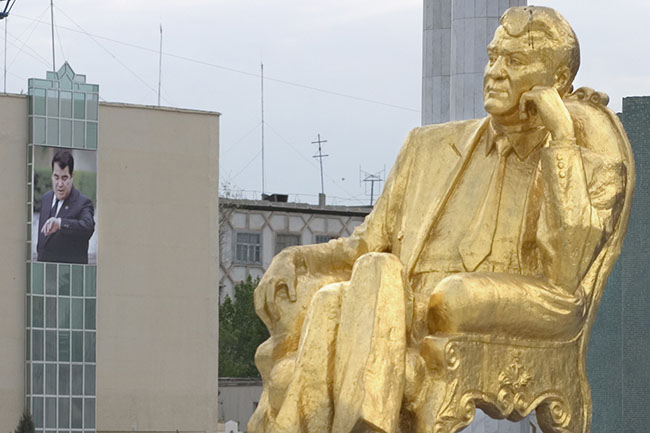
Most of the news media is at war with Donald Trump, and rightly so. First, journalists should always be at war with the governments they cover. Nonadversarial journalism isn’t journalism — it’s stenography. Second, Trump Administration officials’ refusal to even pretend to be interested in the truth, immortalized by Kellyanne Conway’s notorious praise of “alternative facts,” demands highly caffeinated contempt.
But let’s not forget an inconvenient truth. Pre-Trump, the watchdogs of democracy were mostly lapdogs, gently licking the blood-soaked hands of those who fed them: America’s political and corporate elites.
Media malpractice has been so sustained and widespread that it’s hard to know where to start. Opinion pages and cable news panel shows where no one to the left of Hillary Clinton is allowed? The abandonment of local news coverage? Massive social and economic upheavals ignored because they only afflict the poor and the middle-class-en-route-to-poor: the rusting of the Rust Belt, the meth and opioid epidemics, the replacement of good jobs by bad ones, the faking of low unemployment and inflation rates?
Editors and producers are guilty of many sins. For my money, however, the biggest and lying-est are the big lies of omission that leave important facts unknown to the public for years and even decades, result in many deaths, and let the perpetrators off the hook both legally and historically.
August publications like The New York Times have finally begun reporting that the president lied when he, you know, lied — as opposed to some weasel word like “misspoke” or counterquoting from an opposing politician. They’re even using “torture” to describe torture (instead of “enhanced interrogation techniques”). But that’s new, and it’s only because they’re corporate liberal and Trump is blogosphere crazy right-wing. Give them another Obama and it’ll be back to giving the people the business as usual.
The high body counts of war spotlight the staggering moral failures of a press that, day after day, fail to remind readers of fundamental truths that usually get suppressed from the outset.
For the better part of a decade, American citizens paid good money for newspapers that purported to bring them the news from Vietnam. What those papers never told them was that the reason LBJ gave for entering the war, a 1964 attack on American ships in the Gulf of Tonkin, never happened. This isn’t controversial; liberal and conservative historians alike agree the war was sold on fake news.
Imagine if the media had begun every story about Vietnam with a Trump-era-ish reference to Johnson’s big lie? “Continuing Unprovoked Attack on North Vietnam, U.S. B-52s Rain Death on Hanoi Without Reason.” Significantly less than 58,000 Americans and 2 million Vietnamese might have died.
After the U.S. lost — which they reported as a withdrawal rather than what really happened — lazy and easily cowed journalists and editors let stand the canard that returning Vietnam War vets were spat upon, insulted as “baby killers” and generally mistreated by dirty leftie hippies waiting for them at the airport. It never happened. To the contrary, the antiwar movement was supportive of vets, running clinics and other facilities to help them out. The myth of the spat-upon hippie, it turns out, began with the 1982 movie “Rambo,” when Sylvester Stallone’s character says it — probably as a metaphor.
Afghanistan’s Taliban government had nothing to do with 9/11, but few Americans know that. Even the soldiers sent to fight, kill and die there thought they were avenging the attack on the World Trade Center — and why not? Thanks to the Bush-era fake news purveyors, few of even the best read and most informed Americans know that Osama bin Laden was already in Pakistan on 9/11, that the Taliban offered to arrest him and turn him over if the U.S. showed some evidence of his guilt, that Al Qaeda had fewer than 100 members in Afghanistan (the vast majority were in Pakistan, as were the infamous training camps), and that there wasn’t a single Afghan among the 19 hijackers.
Would Afghanistan have become America’s longest war if news headlines had read something like “Bush Promises To Hunt Down Bin Laden and Al Qaeda in Country Where They Aren’t, Sends Weapons and Cash to Country Where They Are”? Doubtful.
That the media fell down on the job during the build-up to the Iraq War is well-documented. Yet, even after the WMDs failed to turn up in that country after we destroyed it, the media never applied the standard they now stick on Trump, e.g. “Continuing Unjustified Assault on Innocent Iraq, Marines Prepare For Battle in Fallujah.” Talk about fake news — even if Saddam Hussein had had WMDs, Iraq’s lack of long-range ballistic missiles meant it never could have posed a threat to the United States.
Alternative facts abounded under Obama.
Obama launched hundreds of drone attacks against Pakistan, Afghanistan, Somalia, Yemen and elsewhere that killed thousands of people. Studies showed that 49 out of 50 people killed were innocent bystanders, and that the other 1 were local guerilla fighters who hated their own local governments, not anti-American jihadis coming to kill us here. Yet story after story about drone assassinations referred to victims as “militants” or even “terrorists,” without a shred of evidence. If you’re going to let your president kill people just for fun, the least the media as a watchdog could do is call it what it is: “President Murders 14 More Muslims Cuz Fun.” Did you know the military calls them “squirters” — because their heads, you know…?
The president called out as a liar? Better 240 years late than never.
(Ted Rall is author of “Trump: A Graphic Biography,” an examination of the life of the Republican presidential nominee in comics form. You can support Ted’s hard-hitting political cartoons and columns and see his work first by sponsoring his work on Patreon.)



 To the French, it felt like the end of the world. 1940: defeated in six weeks, surrender, subjugation, overrun by German soldiers whose power of life or death were absolute and absolutely capricious. Fascism triumphant; organized resistance as yet unimaginable.
To the French, it felt like the end of the world. 1940: defeated in six weeks, surrender, subjugation, overrun by German soldiers whose power of life or death were absolute and absolutely capricious. Fascism triumphant; organized resistance as yet unimaginable.

 “There’s no savior out there.” That’s a line from “
“There’s no savior out there.” That’s a line from “

